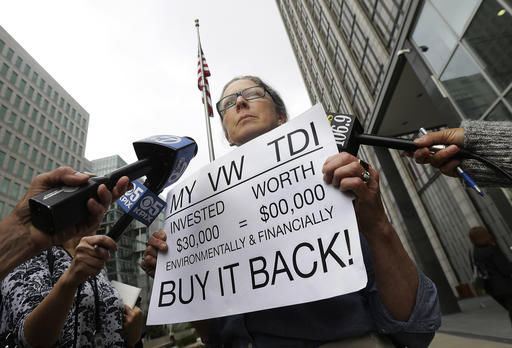On Tuesday, the U.S. District Court for the Northern District of California approved a settlement in the Volkswagen Clean Diesel MDL that puts the interests of the attorneys ahead of consumers. The class action, In re Volkswagen “Clean Diesel” Marketing, Sales Practices, and Products Liability Litigation , No. 3:15-md-2672, arose from the emissions scandal that erupted last year following the U.S. Environmental Protection Agency (“EPA”) issuing a Notice of Violation to Volkswagen for manufacturing and installing defeat devices in certain model year 2009 through 2015 diesel vehicles, resulting in violations of the Clean Air Act’s emission standards.
The Court also approved settlements in actions against Volkswagen by the U.S. Department of Justice (“DOJ”), on behalf of the EPA, the U.S. Federal Trade Commission (“FTC”), and California state agencies.
The settlement of consumer claims approved by the court involves a class comprising the owners of approximately 475,000 vehicles. But the relief made available to class members under that settlement is already wholly provided to them in the settlements between federal and state regulators: The partial consent decree entered between Volkswagen and DOJ/EPA and the state of California (“DOJ Order”) requires Volkswagen to offer a buyback or lease termination for every eligible vehicle, with funding from Volkswagen of $10 billion, at “Retail Replacement Value.” That requirement is satisfied based on the compensation detailed in the partial stipulated order for permanent injunctive relief and $10 billion in monetary judgment filed by the FTC (“FTC Order”). The DOJ Order imposes on Volkswagen the obligation to buy back or allow the termination of leases regardless of whether the FTC Order and class action settlement are approved. (Note that the $10 billion reflects what Volkswagen pays, not the net of what the class receives, since they have to give up their vehicles to receive payment.)
Under the class action settlement, then, consumers are releasing their valuable right to sue Volkswagen in exchange for zero marginal value. Even worse, the settlement actually has negative value for consumers. Class counsel has indicated they may seek up to $324 million in fees. As a result, consumers are releasing their individual claims solely so that their purported representatives can be paid hundreds of millions of dollars.
On behalf of class member Matthew Comlish, the Competitive Enterprise Institute’s (“CEI”) Center for Class Action Fairness objected to the settlement. CEI asked the court to reject the settlement because class counsel breached their fiduciary duty by negotiating a settlement with negative value to class members. Class counsel further compromised their clients’ interests by misinforming class members with respect to their rights, issuing a notice that told class members that if they exercised their right to opt out of the class action settlement, they could not receive a buyback or lease termination—which is directly contrary to the DOJ Order.
The Court nevertheless adopted plaintiffs’ argument that “none [of the settlements] can function without the others”—despite specific settlement terms making the three settlements separate and independent. This inaccurate finding required the Court also to ignore that the $10 billion funding pool was required by the DOJ Order and created by the FTC Order, and that the FTC Order set forth specific compensation amounts that must be paid to eligible vehicle owners. Those compensation amounts were simply mirrored in the class action settlement.
The Court further erred in its discussion of the impact of attorneys’ fees on the compensation available to the class. Judge Breyer adopted the economic fiction espoused by class counsel that the attorneys’ fees would not diminish the benefit available to the class. This position is directly contrary to Judge Posner’s analysis in Pearson v. NBTY , 772 F.3d 778 (7th Cir. 2014) and Redman v. RadioShack Corp , 768 F.3d 622 (7th Cir. 2014). By negotiating class benefit first, class counsel likely cost the class hundreds of millions of dollars: As a rational economic actor, Volkswagen would have held back money in the first step of negotiations (class relief) because Volkswagen has to conservatively estimate what class counsel may seek in fees during the second step. Some commentators expected a request of over $1 billion—and Volkswagen may have withheld up to that full amount during the negotiations over class relief. Consumers were denied the difference between the amount Volkswagen withheld and the amount of fees ultimately paid to class counsel.
While many commentators predicted that the three settlements were uniquely “too big to fail,” the approval of the class action settlement nevertheless creates an unseemly precedent. It signals to other plaintiffs’ attorneys that it is acceptable to refuse to compete to set a market rate for fees at the outset of the case, as CEI urged in an amicus brief when the MDL was first initiated, and instead to negotiate a settlement that prioritizes the recovery of attorneys’ fees over relief for the harmed consumers.
Anna St. John is an attorney with CEI’s Center for Class Action Fairness.
Source: www.cnsnews.com




